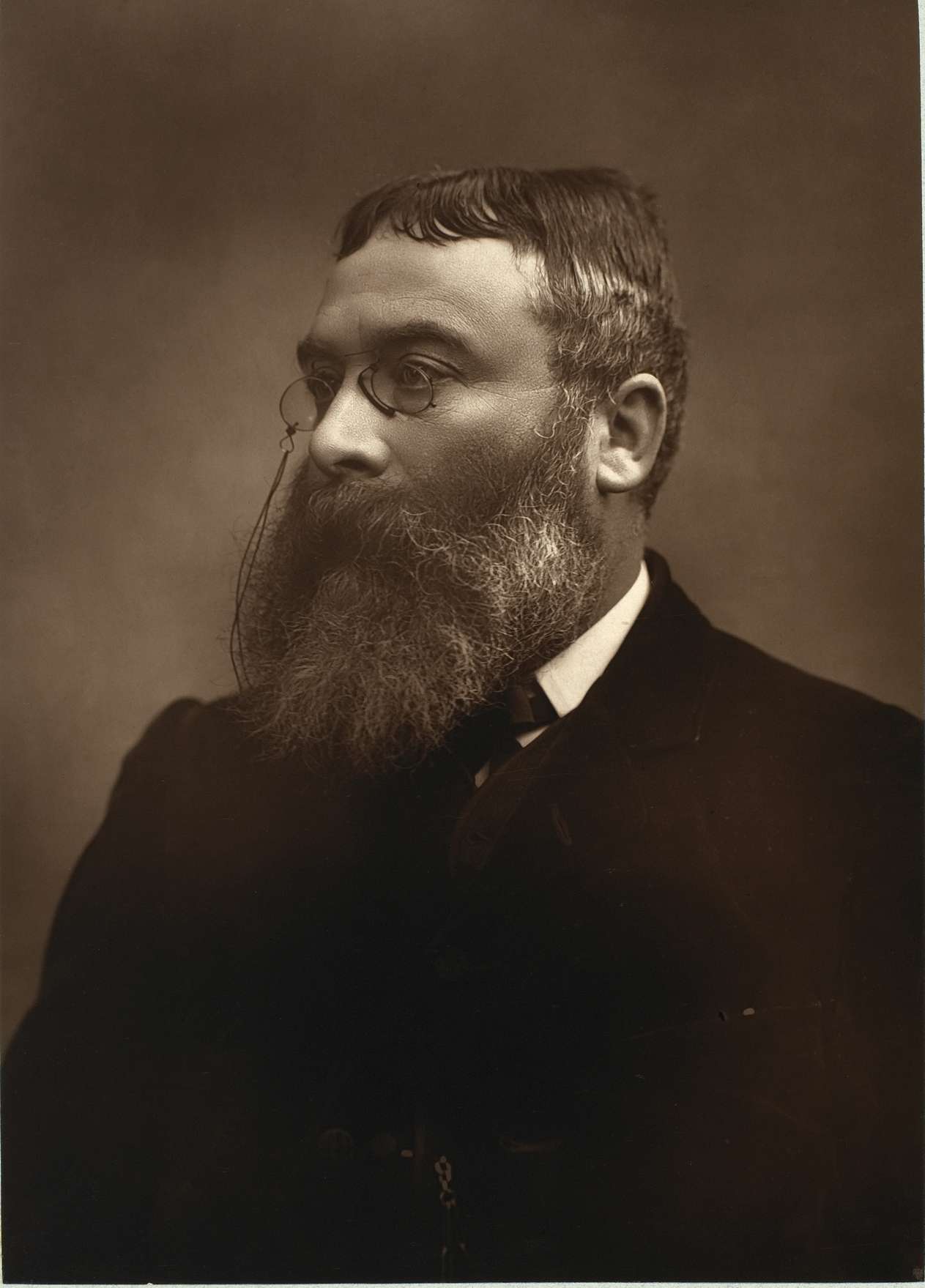Walter Besant

Sir Walter Besant (14 August 1836 – 9 June 1901) was an English novelist and historian.
Personal Life
The son of wine merchant William Besant (1800–1879), he was born at Portsmouth, Hampshire and attended school at St Paul's, Southsea, Stockwell Grammar, London and King's College London. In 1855, he was admitted as a pensioner to Christ's College, Cambridge, where he graduated in 1859 as 18th wrangler.
After a year as Mathematical Master at Rossall School, Fleetwood, Lancashire, and a year at Leamington College, he spent six years as professor of mathematics at the Royal College, British Mauritius. A decline in health compelled him to resign, and he returned to England and settled in London in 1867. From 1868 to 1885, he held the position of Secretary to the Palestine Exploration Fund. In 1871, he was admitted to Lincoln's Inn.
In 1874, Besant married Mary Garrett (née Foster-Barham), daughter of Eustace Foster-Barham, of Bridgwater, with whom he had four children. For some time he took care of his sister-in-law Annie Besant, a prominent women’s rights activist, socialist, and theosophist.
Besant was a freemason, joining the Lodge of Harmony in Mauritius in 1862. He became Master of Marquis of Dalhousie Lodge, London in 1873, having joined in 1869. He was one of the founders of the first Masonic research lodge, Quatuor Coronati Lodge No 2076, of which he was the first treasurer from 1886. He was also one of the founders and first chair of the Society of Authors in 1884. He was knighted in the 1895 Birthday Honours.
He was treasurer of the "Atlantic Union", an association which sought to improve social relations between Britons and Americans. He died in Frognal in Hampstead, London on 9 June 1901, aged 64.
Career
In 1868 he published Studies in French Poetry. Three years later he began his collaboration with writer James Rice. Among their joint productions are Ready-money Mortiboy (1872), and The Golden Butterfly (1876), both, especially the latter, very successful. This association was ended by the death of Rice in 1882.
Thereafter, Besant continued to write voluminously by himself, his main novels being All in a Garden Fair, Dorothy Forster (his own favorite), Children of Gibeon, and All Sorts and Conditions of Men. The two last belonged to a series in which he endeavored to arouse the public conscience to the hardship among the poorest classes of cities. In this crusade Besant had considerable success, the establishment of The People's Palace in the East of London being one result. His 1889 novel The Bell of St. Paul's was considered by his contemporary author George Gissing to be an 'absurd and empty book'.
A lesser known title is The Revolt of Man which describes a society in which men become subjugated by women leading to disasterous results.
In addition to his fiction, Besant wrote largely on the history and topography of London. His plans for this topic were left unfinished: among his books on this subject is London in the 18th Century.
See Also
Wikipedia
This article contains information imported from the English Wikipedia. In most cases the page history will have details. If you need information on the importation and have difficulty obtaining it please contact the site administrators.
Wikipedia shows a strong woke bias. Text copied over from Wikipedia can be corrected and improved.